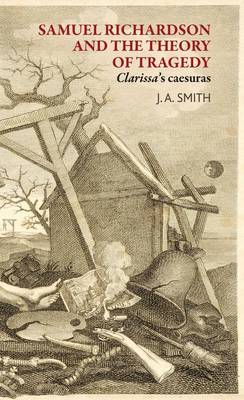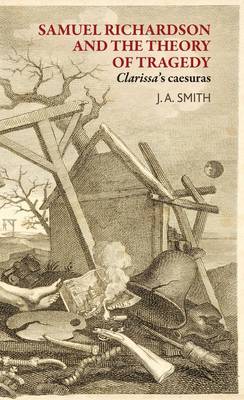
Door een staking bij bpost kan je online bestelling op dit moment iets langer onderweg zijn dan voorzien. Dringend iets nodig? Onze winkels ontvangen jou met open armen!
- Afhalen na 1 uur in een winkel met voorraad
- Gratis thuislevering in België vanaf € 30
- Ruim aanbod met 7 miljoen producten
Door een staking bij bpost kan je online bestelling op dit moment iets langer onderweg zijn dan voorzien. Dringend iets nodig? Onze winkels ontvangen jou met open armen!
- Afhalen na 1 uur in een winkel met voorraad
- Gratis thuislevering in België vanaf € 30
- Ruim aanbod met 7 miljoen producten
Zoeken
€ 111,95
+ 223 punten
Omschrijving
Samuel Richardson and the theory of tragedy is a bold new interpretation of one of the greatest European novels, Samuel Richardson's Clarissa. It argues that this text needs to be rethought as a dangerous exploration of the ethics of tragedy, on the scale of the great arguments of post-Romantic tragic theory, from Hölderlin to Nietzsche, to Benjamin, Lacan and beyond. Taking the reader through the novel from beginning to end, it also acts as a guidebook for newcomers to Richardson's notoriously massive text, and situates it alongside Richardson's other works and the epistolary novel form in general. Filled with innovative close readings that will provoke scholars, students and general readers of the novel alike, it will also serve as a jumping off point for anyone interested in the way the theory of tragedy continues to be the privileged meeting point between literature and philosophy.
Specificaties
Betrokkenen
- Auteur(s):
- Uitgeverij:
Inhoud
- Aantal bladzijden:
- 192
- Taal:
- Engels
Eigenschappen
- Productcode (EAN):
- 9780719097935
- Verschijningsdatum:
- 22/04/2016
- Uitvoering:
- Hardcover
- Formaat:
- Genaaid
- Afmetingen:
- 135 mm x 201 mm
- Gewicht:
- 317 g

Alleen bij Standaard Boekhandel
+ 223 punten op je klantenkaart van Standaard Boekhandel
Beoordelingen
We publiceren alleen reviews die voldoen aan de voorwaarden voor reviews. Bekijk onze voorwaarden voor reviews.











